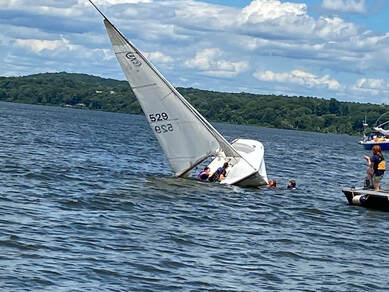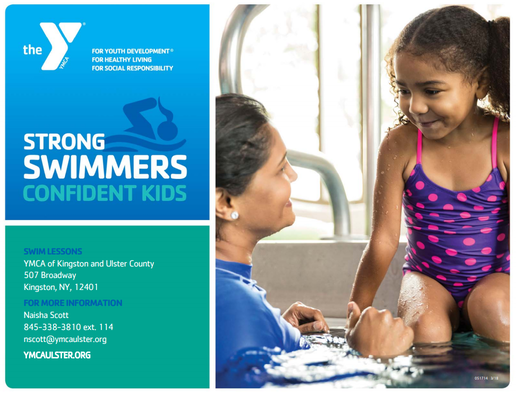|
|
|
COVID-19 & Our Campus
To learn about how COVID-19 has affected our campus and the changes we have made, read the statement on our homepage at www.hrmm.org.
To learn about how COVID-19 has affected our campus and the changes we have made, read the statement on our homepage at www.hrmm.org.
Frequently Asked Questions
Can students bring a spouse and/or family to campus?
- Yes! HRMM is located in Kingston's historic waterfront district which offers plenty of options for food, recreation, and sightseeing. Visit the business district's directory to explore restaurants, shops, and local attractions: www.thekingstonwaterfront.com. We are located in Ulster County which is full of quaint towns, hiking destinations, and historical sites. Visit the Ulster County Tourism website to learn more and plan your trip: www.ulstercountyalive.com.
- A variety of choices include chain hotels, Airbnb, and resorts. Use any of the following directories to find a place to stay. Our campus is located at 50 Rondout Landing in Kingston, NY 12401.
- Ulster County Tourism
- Airbnb
- Yes! The kitchen in the Wooden Boat School has a fridge in which a small group of students may store a bagged lunch, snacks, and drinks. If you are part of a larger group, then each student will need to pack lunch in an insulated bag with a cooler pack.
- The picnic tables on the patio beside the Wooden Boat School offer an idyllic place to eat lunch beside the Rondout Creek. Kingston's waterfront district offers many food options and a directory can be found on the business district website at www.thekingstonwaterfront.com. A bustling farmers market takes place seasonally on Sundays.
- Free parking is available in the municipal parking lot across the street from the museum or the municipal lot down the street in front of the Trolley Museum of New York, or you may use the metered street parking in front of the museum. Metered parking is free after 6 pm and on Sundays.
- There are several handicapped parking spaces near our campus at 50 Rondout Landing. These are part of the street parking in front of the museum building entrance, in the parking lot next to our large gray barn, and in the municipal parking lot across the street from our campus.
Important Info for Sailing School Students
WHAT TO BRING & HOW TO DRESS
All Students
WEATHER POLICY
Sailors are hearty souls, and our classes go out sailing in a variety of weather conditions, including hot weather, cold weather, light wind, heavy wind, light rain, etc. However, we do not go out if dangerous conditions, i.e. thunderstorms, threaten. There is much to learn related to sailing that can be covered on land, including parts of the boat, nomenclature, basic aerodynamics, how-to’s (how to dock, how to pick up a mooring, how to anchor, how to do crew overboard procedures, etc.) rules of the road, navigation, knots, line management, etc.
Therefore, classes will meet, whether rain or shine. Our instructors are dynamic and creative and have lots of ways of delivering material on land in fun and engaging ways with games, drills, and activities.
First Sail, a two-hour introduction to sailing, is the one exception to our rain or shine sailing class policy. If the weather looks questionable, please check your email two hours before your scheduled First Sail class to see if the class is going to be postponed due to weather.
LIFE JACKETS
Everyone will wear a life jacket/personal flotation device (PFD) during sailing classes. If you have your own PFD which fits snugly, please bring it. You can also buy one at www.westmarine.com or at local sporting goods stores. If you do not own a PFD, you are welcome to use one of ours.
ATTENDANCE POLICY
Please clear your calendar and plan to attend all scheduled sessions of your class. The Sailing School is not able to schedule make-up sessions for students who miss classes.
MEETING YOUR INSTRUCTOR
The HRMM campus includes three buildings, the gray Homeport barn on the West side of the facility, the red brick museum building in the middle of the campus, and the gray (with green awnings) Riverport Wooden Boat School building on the East side of campus. Please meet your instructor ten minutes before the start of your class in the classroom at the Riverport Wooden Boat School or at the picnic tables outside of the Riverport Wooden Boat School building, on the East side of the building, closest to Ole Savannah restaurant. The physical address is 86 Rondout Landing.
CANCELLATION/REFUND POLICY
Full refunds will be offered for cancellations that occur 30 days or more before a program's registration deadline (if no deadline, the first day of the program). Cancellations between 30 and 7 days will be offered a 50% refund or credit toward another class. Cancellations after the registration deadline or within 7 days of the first day of class (whichever comes first) will not be refunded.
If you have any questions, please feel free to contact Jody Sterling, Sailing Program Director, at [email protected]. We look forward to seeing you in class!
All Students
- Apply sunscreen before your class.
- Wear closed-toed sneakers, water shoes or boat shoes.
- Dress in layers for the weather and wear comfortable clothes in which you can move easily. Bringing a light water-proof jacket is a good idea.
- Wear a hat and/or sunglasses.
- If you wear prescription glasses, please attach the glasses with a tether, so if they fall off your face, they do not go overboard!
- Bring a refillable, full water bottle. You may want to bring electrolyte packets to add to your water. Please do not bring single-use plastic bottles or glass bottles.
- If your class is a day-long session, bring a bag lunch with a cold pack to keep it fresh. Please eat a meal before attending two-hour or three-hour classes. Feel free to bring a light snack to class.
- We recommend youth sailors wear a swim suit with a tee shirt and shorts over their swimsuit or clothes that can get wet because youth sailing classes include capsize practice, and students will get wet. This guideline also includes parents in the Parent-Child sailing class.
- Youth sailing students should bring a change of clothes and a towel to use after returning to shore each day.
- Full day youth sailing students should bring a healthy, picnic-style bag lunch with a cold pack to keep it fresh. Ideas include sandwiches, fruit, veggies & dip, cold meats, cheeses or tofu, granola bars, etc.) Please avoid packing nuts as some of our students are allergic.
WEATHER POLICY
Sailors are hearty souls, and our classes go out sailing in a variety of weather conditions, including hot weather, cold weather, light wind, heavy wind, light rain, etc. However, we do not go out if dangerous conditions, i.e. thunderstorms, threaten. There is much to learn related to sailing that can be covered on land, including parts of the boat, nomenclature, basic aerodynamics, how-to’s (how to dock, how to pick up a mooring, how to anchor, how to do crew overboard procedures, etc.) rules of the road, navigation, knots, line management, etc.
Therefore, classes will meet, whether rain or shine. Our instructors are dynamic and creative and have lots of ways of delivering material on land in fun and engaging ways with games, drills, and activities.
First Sail, a two-hour introduction to sailing, is the one exception to our rain or shine sailing class policy. If the weather looks questionable, please check your email two hours before your scheduled First Sail class to see if the class is going to be postponed due to weather.
LIFE JACKETS
Everyone will wear a life jacket/personal flotation device (PFD) during sailing classes. If you have your own PFD which fits snugly, please bring it. You can also buy one at www.westmarine.com or at local sporting goods stores. If you do not own a PFD, you are welcome to use one of ours.
ATTENDANCE POLICY
Please clear your calendar and plan to attend all scheduled sessions of your class. The Sailing School is not able to schedule make-up sessions for students who miss classes.
MEETING YOUR INSTRUCTOR
The HRMM campus includes three buildings, the gray Homeport barn on the West side of the facility, the red brick museum building in the middle of the campus, and the gray (with green awnings) Riverport Wooden Boat School building on the East side of campus. Please meet your instructor ten minutes before the start of your class in the classroom at the Riverport Wooden Boat School or at the picnic tables outside of the Riverport Wooden Boat School building, on the East side of the building, closest to Ole Savannah restaurant. The physical address is 86 Rondout Landing.
CANCELLATION/REFUND POLICY
Full refunds will be offered for cancellations that occur 30 days or more before a program's registration deadline (if no deadline, the first day of the program). Cancellations between 30 and 7 days will be offered a 50% refund or credit toward another class. Cancellations after the registration deadline or within 7 days of the first day of class (whichever comes first) will not be refunded.
If you have any questions, please feel free to contact Jody Sterling, Sailing Program Director, at [email protected]. We look forward to seeing you in class!
Useful Terms for New Sailors
A Centerboard Sailboat is a sailboat, typically ranging from eight to twenty feet in length. It includes a pivoted board called a centerboard that can be lowered and raised back up through the bottom of the sailboat to reduce sideways movement when sailing and improve stability when lowered and which allows the boat to move into shallow water when raised. There are many different types of centerboard sailboats.
A Keelboat is usually a larger sailboat, from eighteen to forty or more feet. It includes a fixed structure called the Keel that extends below the bottom of the boat to reduce sideways movement and improve stability when sailing. Keelboats typically need a minimum of five to ten feet of water in which to sail. There are many different types of keel boats.
A Keelboat is usually a larger sailboat, from eighteen to forty or more feet. It includes a fixed structure called the Keel that extends below the bottom of the boat to reduce sideways movement and improve stability when sailing. Keelboats typically need a minimum of five to ten feet of water in which to sail. There are many different types of keel boats.

A Capsize happens when a centerboard sailboat (usually unintentionally) overturns in the water. Our centerboard sailing classes teach students how to avoid an unintentional capsize and how to safely recover from a capsize. It is virtually impossible for keel sailboats to capsize.
Swim Lessons
The YMCA of Kingston & Ulster County offers swim lessons and we encourage anyone who is interested in learning or strengthening this skill to register for classes. The Y Swim Lessons series accommodates varying abilities to help advanced swimmers move to higher levels, while allowing other students who need more instruction to learn at their own pace. Learn more at www.ymcaulster.org/swim-lessons.
Boating Safety Education
Tdhe Sailing School at the Hudson River Maritime museum strongly encourages all sailors to take a boating safety course before they begin sailing lessons. Students who have already started to sail will also benefit from completing a boating safety course. The BoatUS Foundation's online course is free and we strongly encourage all of our students to enroll. Learn more at www.boatus.org/newyork.
Maritime Safety Guide Guide Though this document is written for commercial mariners, there is some relevant information for recreational sailors as well. www.lanierlawfirm.com/maritime-safety-guide/
Coastal Safety at Sea is an online course sponsored by US Sailing designed to provide you with essential safety information that you can use immediately on the water: Giving Assistance, Personal Safety Gear, Crew Overboard Rescue, Emergency Communication, Search and Rescue. This course satisfies the requirements for Coastal Races being sailed under United States Special Equipment Regulations 4.3.2. You will receive a Coastal Safety at Sea Certificate upon completion. https://shop.ussailing.org/online-coastal-safety-at-sea-code.html
Online Classes
Some of our classes are held online and these are facilitated through Zoom. If you are new to using Zoom, you will find it helpful to test the platform and get a feel for the experience before your class. Here are links to help you get started:
Join a Meeting
Joining & Configuring Audio & Video
Join a Meeting
Joining & Configuring Audio & Video
|
GET IN TOUCH
Hudson River Maritime Museum
50 Rondout Landing Kingston, NY 12401 845-338-0071 [email protected] Contact Us |
GET INVOLVED |
stay connected |
Proudly powered by Weebly



